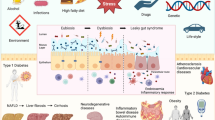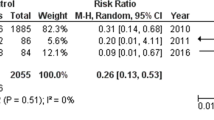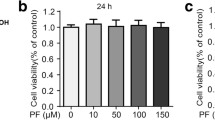Abstract
The ulcerogenic effect of rofecoxib, a selective cyclooxygenase-2 (COX-2) inhibitor, on the gastrointestinal mucosa was investigated in the presence of a low dose of indomethacin. Indomethacin at 3 mg/kg did not cause any damage in both the stomach and small intestine, despite inhibiting prostaglandin (PG) production. Rofecoxib had no effect on PG production and did not cause any damage in these tissues. In the presence of indomethacin, however, rofecoxib provoked damage in the small intestine but not the stomach. Indomethacin at 3 mg/kg induced hypermotility and COX-2 expression in the intestine but not in the stomach, both in an atropine-sensitive manner. These results suggest that a low dose of indomethacin produces damage in the small intestine but not in the stomach when administered together with rofecoxib. The PG deficiency caused by a low dose of indomethacin produces hypermotility and COX-2 expression in the small intestine, and results in damage when COX-2 is inhibited. It is assumed that the hypermotility response is a key event in the expression of COX-2 and thereby important in the development of mucosal damage in the gastrointestinal tract.
Similar content being viewed by others
References
Futaki, N., Takahashi, S., Yokoyama, M., et al. (1994). NS-398, a new antiinflammatory agent, selectively inhibits prostaglandin G/H synthase/cyclo-oxygenase (COX-2) activity in vitro, Prostaglandins 47, 55–59.
Tso, J. Y., Sun, X. H., Kao, T. H., et al. (1985). Isolation and characterization of rat and human glyceraldehyde-3-phosphate dehydrogenase cDNAs: Genomic complexity and molecular evolution of the gene, Nucleic Acids Res. 13, 2485–2502.
Konaka, A., Kato, S., Tanaka, A., et al. (1999). Roles of enterobacteria, nitric oxide and neutrophil in pathogenesis of indomethacin-induced small intestinal lesions in rats, Pharmacol. Res. 40, 517–524.
Reuter, B. K., Davies, N. M. and Wallace, J. L. (1997). Nonsteroidal anti-inflammatory drug enteropathy in rats: Role of permeability, bacteria, and enterohepatic circulation, Gastroenterology 112, 109–117.
Takeuchi, K., Ueki, S. and Okabe, S. (1986). Importance of gastric motility in the pathogenesis of indomethacin-induced gastric lesions in rats, Dig. Dis. Sci. 31, 1114–1122.
Takeuchi, K., Tanaka, A., Ohno, R., et al. (2002a). COX inhibition and NSAID-induced gastric damage, Pharmacol. Res. Trends 6, 69–81.
Takeuchi, K., Miyazawa, T., Tanaka, A., et al. (2002b). Pathogenic importance of intestinal hypermotility in NSAID-induced small intestinal damage in rats, Digestion 66, 30–41.
Tanaka, A., Araki, H., Hase, S., et al. (2001). Inhibition of both COX-1 and COX-2 is required for development of gastric damage in response to nonsteroidal antiinflammatory drugs, J. Physiol. 95, 21–27.
Tanaka, A., Hase, S, Miyazawa, T., et al. (2002a). Up-regulation of COX-2 by inhibition of COX-1: A key to NSAID-Induced intestinal damage, J. Pharmacol. Exp. Ther. 300, 754–761.
Tanaka, A., Matsumoto, M., Katagiri, A., et al. (2002b). NSAID-induced small intestinal damage: Role of COX inhibition, Inflammopharmacology 10, 313–325.
Tanaka, A., Araki, H., Hase, S., et al. (2002c). Roles of COX-1 and COX-2 inhibition in nonsteroidal antiinflammatory drug-induced gastric damage in rats: Relation to functional responses, Aliment. Pharmacol. Ther. 16, 90–101.
Wallace, J. L., McKnight, W., Reuter, B. K., et al. (2000). NSAID-induced gastric damage in rats: requirement for inhibition of both cyclooxygenase 1 and 2, Gastroenterology 119, 706–714.
Whittle, B. J. R. (1981). Temporal relationship between cyclooxygenase inhibition, as measured by prostacyclin biosynthesis and the gastrointestinal damage induced by indomethacin in rat, Gastroenterology 80, 94–98.
Author information
Authors and Affiliations
Corresponding author
Rights and permissions
About this article
Cite this article
Yokota, A., Taniguchi, M., Tanaka, A. et al. Development of intestinal, but not gastric damage caused by a low dose of indomethacin in the presence of rofecoxib. Inflammopharmacol 13, 209–216 (2005). https://doi.org/10.1163/156856005774423755
Received:
Accepted:
Issue Date:
DOI: https://doi.org/10.1163/156856005774423755




